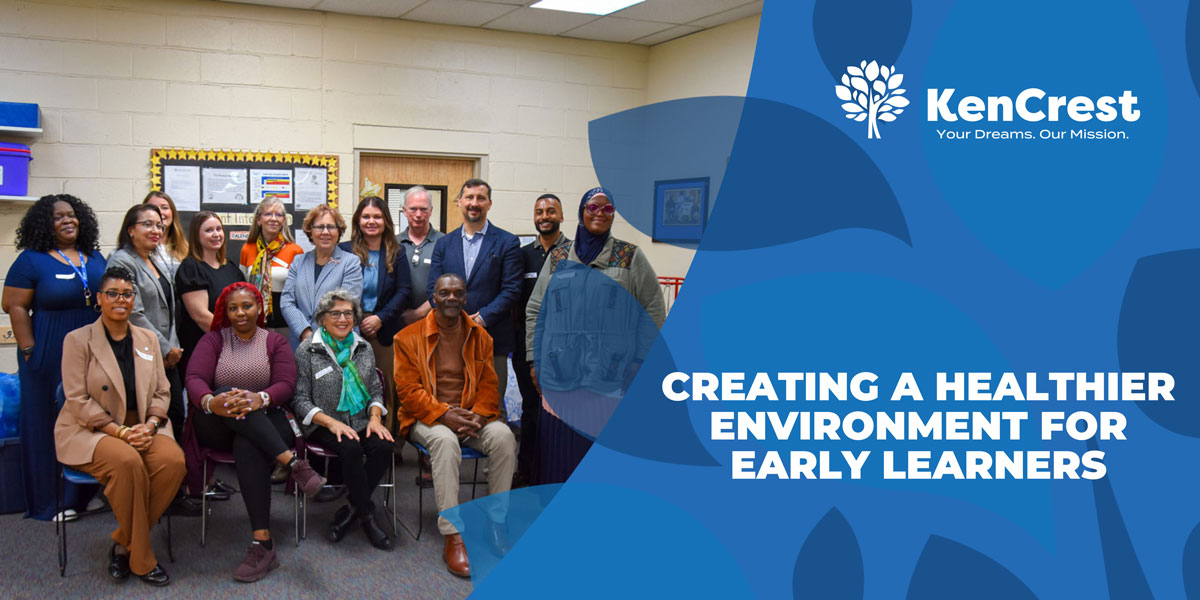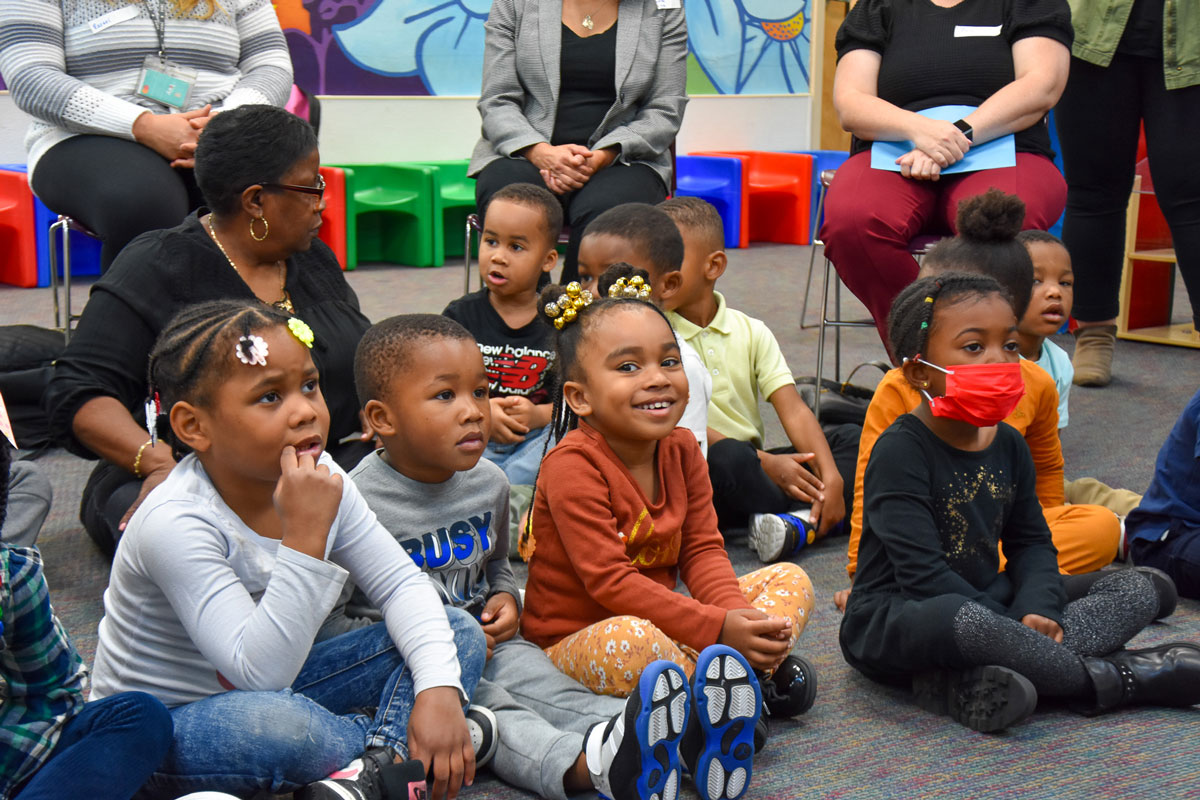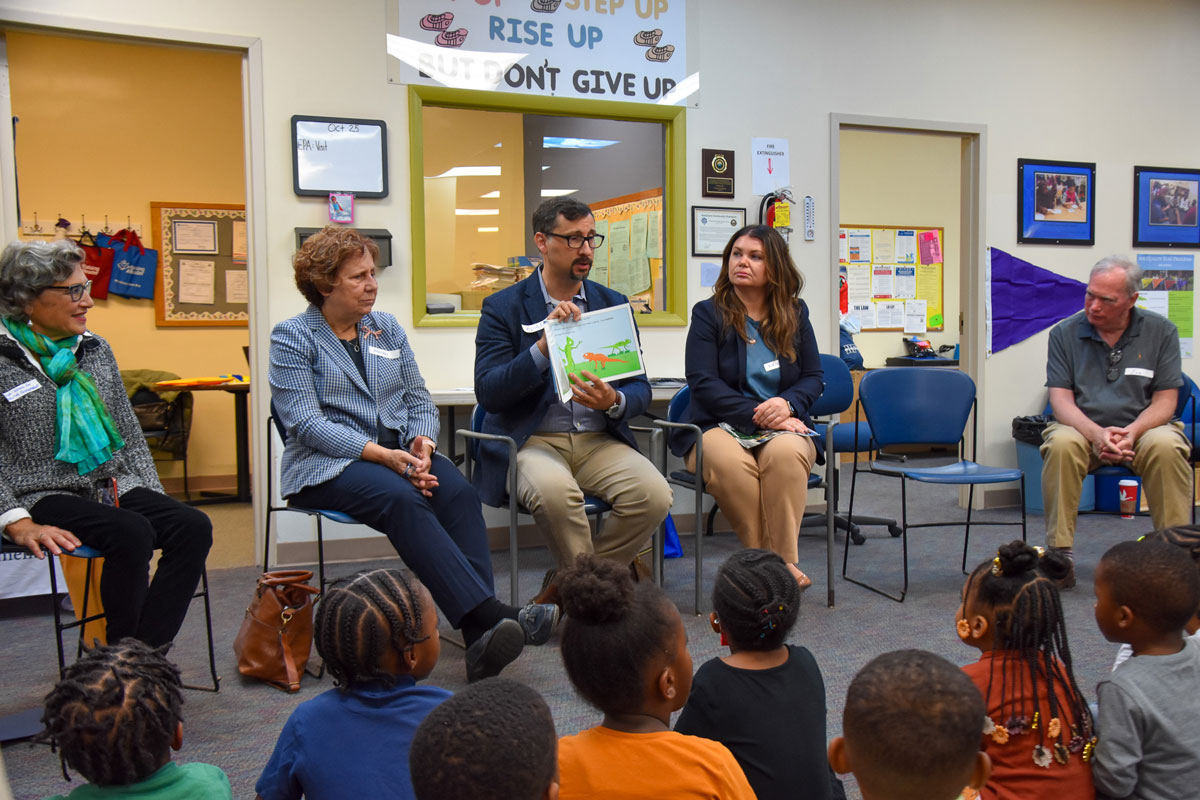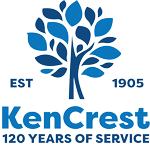
Women for a Healthy Environment, EPA, and the Philadelphia Department of Public Health visiting KenCrest's Early Learning Center. // Photo by Aubrey Hoffert
KenCrest’s Early Learning Centers and the Women for a Healthy Environment teach Philly families about ways to be eco-friendly.
By Sydney Kerelo
In the beginning of 2023, KenCrest’s Early Learning Centers partnered with a Pittsburgh-based nonprofit, Women for a Healthy Environment (WHE), to raise awareness of environmental risk factors to human health. The collaboration aims to educate families and children about protecting themselves and the environment at home, in a school setting, or just throughout the community.
Since the partnership began in January 2023, KenCrest and WHE have collaborated to host multiple workshops at various KenCrest Centers to educate young children and their families about ways to protect the environment and their health.
“It started as a kind of women’s health organization, but now we focus more broadly on healthy schools, healthy childcare, and healthy homes,” says Lorna Rosenberg, the Healthy Buildings Program Manager at WHE. “In 2021, we got funding to work with childcare in Philly, and it was an Environmental Protection Agency (EPA) grant from the Office of Children’s Health Protection that helped us fund our eco-healthy assessments in childcare centers in Philly.”
According to Rosenberg, WHE ended up with a targeted list of neighborhoods with all the childcare centers in the area, one of which was KenCrest.

A few of the students at one of KenCrest's Early Learning Centers. // Photo by Aubrey Hoffert
Rosenberg and her team visited all seven of KenCrests Early Learning Centers to conduct air quality testing and help change a few longstanding program practices to healthier alternatives. One way they did this was by installing air purifiers in all of their classrooms to reduce the chance of children getting sick. Another example is one of the leading cleaners used in the Centers was bleach to disinfect and clean specific areas. With Rosenberg’s suggestions, they found a more eco-friendly and safer disinfectant.
“We have several oversight entities that look for us to be cleaning our rooms, cleaning the classrooms and the toys with a bleach solution to disinfect, and there’s a lot of people who have concerns with that,” says Melanie Brennan, the Executive Director of KenCrest’s Early Learning Centers. “Bleach can be a trigger for kids with asthma or COPD. So Lorna is doing the work to assess and evaluate the effects of bleach, and then she will find an alternative mechanism to disinfect.”
Rosenberg and WHE are also helping KenCrest’s Centers become more eco-friendly by installing anti-idling signs in front of the Early Learning Centers. Some of KenCrest’s Centers are right on busy roads with a lot of traffic, and there were concerns about the effects that would have on students’ health.
The nonprofit even hosted a reading event at one of the Centers to teach the children about the air quality index. The Philadelphia Department of Public Health, the Environmental Protection Agency (EPA), and a local state representative also came to teach the children about air quality. This national monitoring network provides a scale of pollution levels that day, and to teach the children about air quality and pollution, WHE handed out various pennant flags to each center, and the goal was for them to assess the air quality in the morning and then hang a pennant in the lobby that shows the pollution level that day. If the flag was green, then the pollution was sound. If it was red or purple—like during the Canadian fires over the summer—then the pollution levels were high that day.
“We even worked with the State of Pennsylvania Commonwealth to distribute radon testing kits to families,” says Rosenberg. “Radon is a colorless, odorless gas that is naturally occurring, and it seeps up from the ground into basements or slabs. It’s radioactive, and you can’t know you have it until you test for it. So, we gave out charcoal canisters that hung on the ground and collected radon if it was present. After the allotted time for it to hang in the home, the families would then send them back to the state to do an analysis, and they would tell you where the levels landed. Radon is significant because the particle will adhere to dust, and breathing it in can cause lung cancer.

The EPA and Women for a Healthy Environment reading a book at one of KenCrest's Early Learning Centers. // Photo by Aubrey Hoffert
At one of the events, an infectious disease specialist taught the children at the center proper hand-washing protocols. Each child got to wear a pair of disposable gloves, and they would put washable paint on the gloves and have the kids wash it off in the sink. It allowed them to see how to wash their hands better to prevent germs.
“Everybody with young kids has the story of their kid going to school, and within a month, they’re sick, or the whole family is sick. And we thought that yes, the kids are building their immunity, but is there a way that we could have minimized that for some families,” says Brennan. “So, we obsessively teach kids about hand washing, cleaning, and the right way to sneeze so that we minimize the germ exchange, but working with Lorna and the WHE, we can gain more knowledge and expand that education to many more people.”
Are you interested in learning more about being eco-friendly or how KenCrest's Early Learning Centers minimize risks?
Click the links to learn more!
